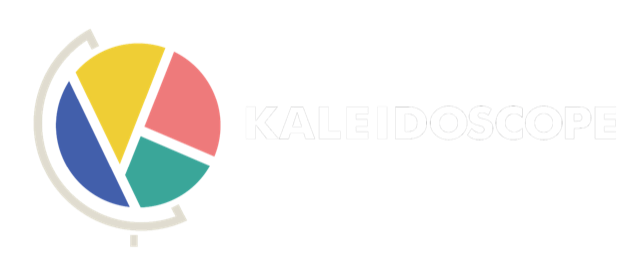BY Sarah Dillard
One of my professors in graduate school—Ricardo Hausmann, the founder and director of the Growth Lab at Harvard—pioneered a way of looking at products as a set of capabilities. Some products rely on capabilities that are more versatile than others. The countries that make these products are fortunate because having a versatile set of capabilities sets a country up to grow more quickly.
What’s true for the macroeconomy is also true for the individual: the more foundational skills a person has, the more types of problems they can tackle, situations they can handle, and products they can create. In short, the more agency they have. The question is: how do you build the skills that power agency?
At Kaleidoscope, our practical liberal arts classes are designed to teach the ideas and skills from each subject area that are most valuable for forty years of work and life. For example—in our English classes, we don’t just analyze other people’s stories, we teach students how to apply the principles of story structure to make their own stories resonate with a real audience, not just score points on a school rubric. Being able to effectively tell a story—whether about yourself, your organization, or your cause–is a powerful way to connect with and influence others.
““The child’s individual liberty must be so guided that through his activity he may arrive at independence … the child who does not do, does not know how to do.””
Skills like storytelling may feel magical once you’ve mastered them, but the path to mastery is anything but magical: students build skills through structured practice. And skills, just like in the product space, are combinatorial: if you’re taught to build the skills that power projects—analyzing data, synthesizing your insights, and presenting them persuasively—there are a lot of open doors for you. In contrast, simply having the opportunity to do “project-based learning” is not going to build the skills you need to do meaningful work in the world (or even create a compelling project).
This approach–selecting powerful ideas and skills, then teaching them in a way that students can translate into useful knowledge and action—is intended to cultivate what we call structured agency. And structured agency is at the heart of all our design decisions at Kaleidoscope.
“This, but for people: “Because each society has a unique set of characteristics, constraints and goals, policies are necessarily idiosyncratic: the path is made by walking. This does not mean that one should disregard what can be learned from others; but imitation without adaptation is a recipe for ineffectiveness, if not worse.””

